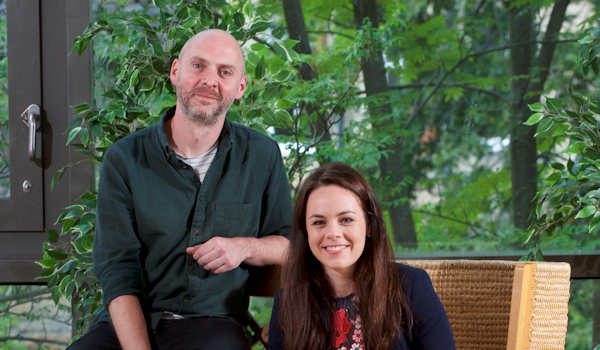
A new programme has been launched that invites people in Dundee to tell their personal stories, whilst developing important digital skills.
Co-ordinated by Scottish Book Trust, the charity transforming lives through reading and writing, a Digital Storyteller in Residence programme will take place at Leisure and Culture Dundee from September 2018 to May 2019.
Statistics show more than one in five adults in Scotland lack basic digital skills¹. This is often due to factors such as poverty, lack of educational qualifications, disability and age. The project will work with people who aren't currently digitally-confident and introduce them to online culture in a way that builds skills and emphasises the personal relevance for them.
Dan Brown, Dundee’s newly appointed Digital Storyteller, will support specially selected groups to create their own digital stories about personal experiences important to them. Participants will use digital technology such as tablets, microphones and editing software to produce a narrated story, accompanied by photographs and visual footage. Each story will be narrated and edited by its creator.
Dan has a wealth of experience inspiring people to tell stories on film, stemming from a background teaching Moving Image at Hereford College of Arts and leading filmmaking workshops for Eastside Educational Trust. He recently worked as a Digital Storyteller in Residence in Glenrothes library during the pilot phase of Scottish Book Trust’s Digital Storytelling Residencies project, supporting people to tell personal stories using digital technology.
Marc Lambert, CEO of Scottish Book Trust, said:
“We are delighted to be introducing this project in Dundee. Digital skills are increasingly important for people to navigate all areas of life and connect with others, and by focusing on storytelling, this project makes it accessible to everyone. We all have stories to share, whether it is personal or about a community or a place or time. By capturing these local stories and building skills in the local community, the project will have a long-term impact…”
Kate Forbes, Minister for Public Finance and Digital Economy who officially launched the overarching project of five Digital Storyteller residences across Scotland, said:
“I’m delighted to launch Scottish Book Trust’s Digital Storytellers in Residence programme. The importance of this project in building digital skills and providing benefit to wider communities is invaluable…”
Dan Brown, Dundee’s Digital Storyteller, said:
“I hope this project provides a safe platform for the people of Dundee to tell and share their stories. Through regular meetings I'll support participants to write, record and edit their stories, with the aim of creating an accessible online archive of digital stories, and a celebration event for participants towards the end of the nine month residency. This is a really interesting time for the city and it is important we capture the stories about the place and the people who stay here. I hope the project helps participants feel pride in their city, their community and themselves…”
Following a successful pilot of the project in 2017, in Ayrshire and Fife, Scottish Book Trust was funded by the Scottish Government to support Digital Storytelling residencies in five library locations: Leisure and Culture Dundee, East Ayrshire Leisure, Falkirk Community Trust, Inverclyde Libraries, and Orkney Library and Archive.
The project will:
- Up-skill library staff, local volunteers and community organisations to ensure the work could continue at the end of the residency
- Introduce people to the web and help them build their digital skills whilst they learn why it is important for them to be online
- Improve basic digital skills amongst participants in a fun and creative way
- Ensure groups across the community can access equipment from the library for storytelling purposes
- Value the voices and experiences of a range of people from local communities traditionally least likely to participate or be represented in the cultural life and artefacts of the area
- Contribute to a living, growing local history resource within the library
- Encourage skill-sharing between generations, different parts of the community and between libraries and their audiences
